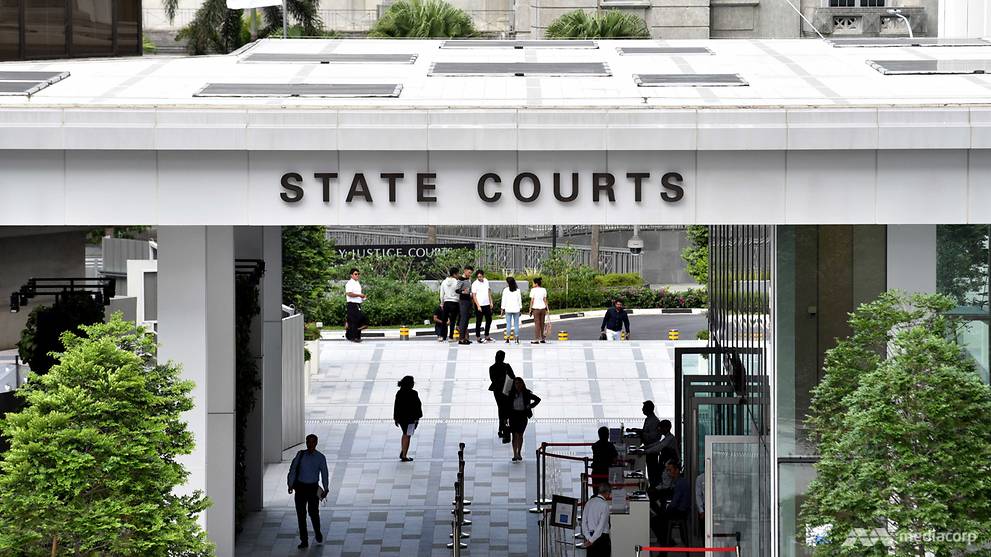
Cabby jailed for posting fake COVID-19 'intel' on food outlet closures, urging panic buying
by Lydia LamSINGAPORE: A taxi driver was jailed four months on Wednesday (May 27) for posting a fake message on Facebook about supposed food outlet closures and urging panic buying.
Kenneth Lai Yong Hui, 40, pleaded guilty to one charge of transmitting a message he knew to be false.
Lai claimed that he saw a text message in one of his WhatsApp groups between Apr 15 and Apr 16, stating that "disposable food container can transmit the virus" and "hawker centre and coffeeshop will be closed".
He was unable to identify who sent the purported message, and the message could not later be recovered from his phone.
However, without taking any steps to verify this information, Lai took to the "Taxiuncle" Facebook group and wrote: "Got intel say sg will proceed with more measures in place come this Saturday. Food courts coffee shop all to close. Supermarkets will only open two days a week. Better go stock up your stuff for the next month or so. Govt officials in meeting yesterday and will finalize measures tomorrow."
He knew that the message was false, the court heard.
Apart from not knowing whether food courts and coffee shops would actually be closed as part of "elevated safe distancing measures", he also admitted later that he had concocted the false information that supermarkets would open only two days a week.
After he created the post, he saw a few comments advising him not to spread rumours, and he deleted it after about 15 minutes.
A man called the police at about 12.30pm on Apr 20 saying he saw the post by Lai, and said: "I know Kenneth is using the (handphone) number - as I used to book his taxi service. Hope you will take up this case as his posting is irresponsible (and) will cause panic to fellow Singaporeans."
BACKGROUND OF PANIC BUYING IN SINGAPORE
Providing background to the case, Deputy Public Prosecutor Deborah Lee said that elevated safe-distancing measures were introduced in Singapore between Apr 7 and May 4 as a "circuit breaker" to curb local transmissions of the coronavirus.
While schools and most workplaces were closed, food outlets including restaurants, hawker centres and food courts remained open for takeaway or delivery. Supermarkets also remained open.
"Mass panic buying of food and essential daily goods in Singapore started as early as Feb 7, when Singapore raised its risk assessment to Disease Outbreak Response System Condition (DORSCON) Orange," said Ms Lee.
The next day, Prime Minister Lee Hsien Loong reassured the public that there were sufficient supplies, and Ministry for Trade and Industry Chan Chun Sing said that hoarding would deprive others of essential supplies.
"A second wave of panic buying was triggered by the Malaysian government's announcement of a nationwide lockdown on Mar 16," said Ms Lee.
Mr Chan again tried to quell concerns of disrupted supplies, saying that Singapore has enough stockpiles of essential supplies.
READ: Singapore has months' worth of stockpiles, planned for disruption of supplies from Malaysia for years: Chan Chun Sing
In the same month, COVID-19 cases "ballooned across Europe and the United States which led to more lockdowns and irrational stockpiling in these countries", said Ms Lee.
In Singapore, snaking queues formed again at supermarkets on Apr 3, hours after the circuit breaker was announced.
Three days later, Mr Chan again cautioned the public that panic buying "would severely disrupt the Government's stockpiling efforts and could spiral into a self-fulfilling and self-feeding frenzy", said the prosecutor.
She asked for at least four months' jail for Lai, saying that the "repercussions of hoarding and panic buying cannot be overstated".
His actions undermined the Government's efforts to reassure the public, said Ms Lee, pointing out that he uploaded the post on a Facebook group with a wide audience of more than 7,000 members.
Lai, who had no lawyer, said: "I'm very sorry and regretful for what I've done. I know I've spread something which is false and after thinking, I think it's not right, so I make a promise that I will never, never do such a thing again."
District Judge Seah Chi-Ling said that spreading such a false message that would lead to panic buying is "a very serious matter in light of the current health crisis".
"A deterrent message needs to be sent to the public," said the judge.
Lai asked if he could get a lighter term, and the judge reiterated that the offence is a serious one.
For transmitting a message he knew to be false, Lai could have been jailed for up to three years, fined a maximum of S$10,000, or both.
BOOKMARK THIS: Our comprehensive coverage of the coronavirus outbreak and its developments
Download our app or subscribe to our Telegram channel for the latest updates on the coronavirus outbreak: https://cna.asia/telegram